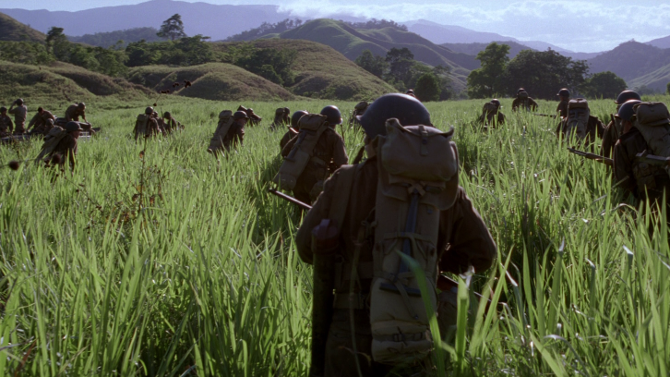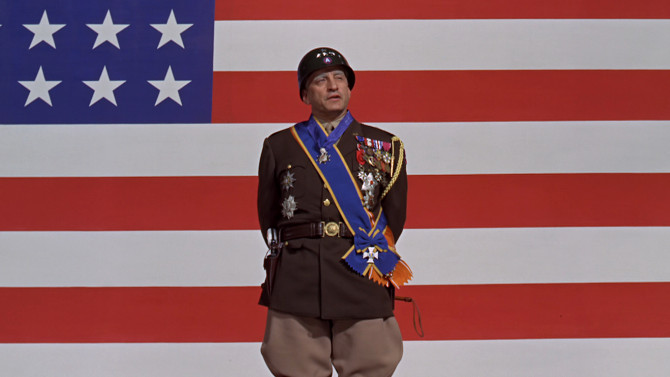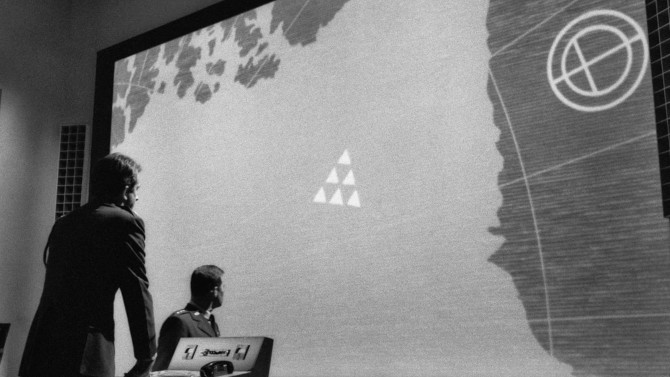
Safety First
Like a severe and utterly serious version of Stanley Kubrick’s 1964 satirical dark comedy Dr. Strangelove or: How I Learned to Stop Worrying and Love the Bomb, you would think that Fail Safe would have been the original release in theatres that was then later spoofed, yet that is not the case. Released approximately six months later in the same year, as you might imagine, it led to very poor returns at the box office – dare I say it (as the film deals with this subject matter)... it was a bomb! Despite that, over time, it has become a bonafide classic. Based upon Eugene Burdick’s 1962 novel of the same name and directed by Sidney Lumet (Dog Day Afternoon), he introduces us to our main players by way of little vignettes.
-
Star Pick with Rod Blackhurst
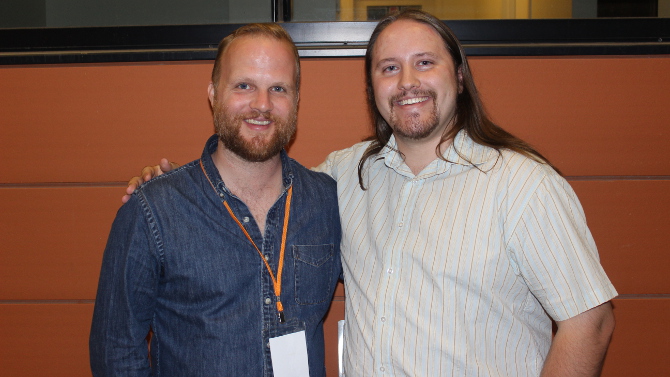 Tow the LineThe Thin Red LineMay 16, 2017
Tow the LineThe Thin Red LineMay 16, 2017Pulling its title from the novel (written by James Jones) that it is based on, Terence Malick’s 1998 film, The Thin Red Line, which was nominated for seven Academy Awards, brings together a who’s who ensemble cast to tell the tale of an intense World War 2 story set in the Pacific Theatre, specifically, the Guadalcanal Campaign. Over the past several weeks you have read about the filmmakers behind the Tribeca Audience Award winning movie, Here Alone – first, producer Noah Lang, and secondly screenwriter David Ebeltoft. Today’s Star Pick will feature the motion picture’s director, Rod Blackhurst. An up and coming director in the business, he has had great success from the beginning. The first time I came across some of his work, funnily enough, was by accident.
-
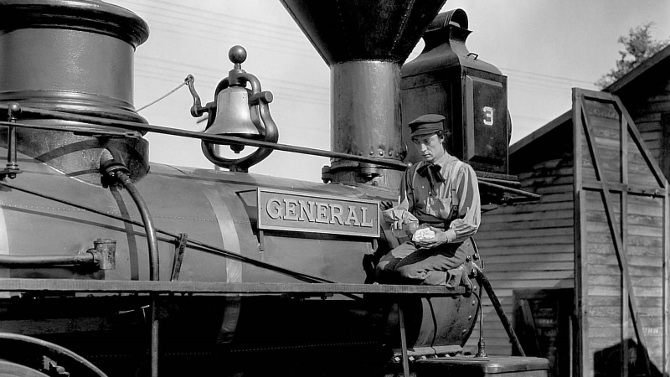
I Like Trains. . . In General
The GeneralMay 9, 2017The General, often considered to be Buster Keaton’s magnum opus (and for good reason – thankfully it was re-evaluated after its initial release, which was not kind), also falls into the realm of being one of the most important train and Civil War films ever produced. To those who do not know the motion picture, they will likely believe that the title refers to the military designation, though it is actually the name of the train the story revolves around. Basically an intricately plotted, lengthy chase, Keaton co-wrote and co-directed the story along with Clyde Bruckman, it being based upon a famous, true Civil War happening, ‘The Great Locomotive Chase’ (also known as Andrews’ Raid). Keaton takes on the role of Johnnie Gray, a train engineer living in Georgia just as the bloody 1861 hostilities boil over. In love with only two things, his beloved locomotive and an angelic, brown haired woman, Annabelle Lee (Marion Mack), he is told by his love that he too must enlist (like her father and brother). The first in line, they reject him, seeing his present job as being of the utmost importance for the South.
-
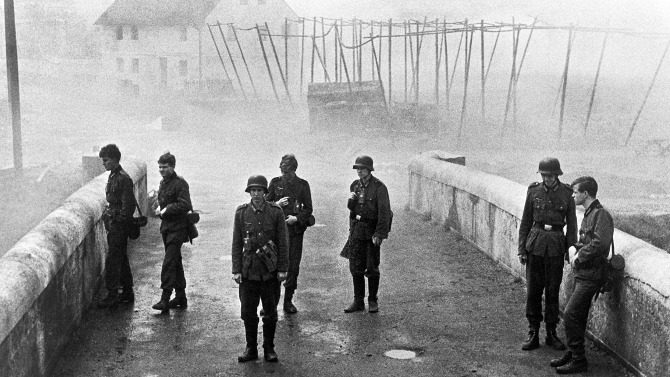
Bridge over Troubled Water
The BridgeMarch 24, 2017World War 2 films have long been an important staple of Hollywood movie making. Even from the early days of the conflict, filmmakers delved into the intense, worldwide happening, seeing the importance and relevance of showcasing such a heart wrenching, profound war that had astronomical consequences. Just think of Charlie Chaplin’s The Great Dictator or Michael Curtiz’s Casablanca as two premium examples. If there is one thing though that I have found frustrating, it is the cookie cutter way in which the Germans have been depicted – either as maniacal villains or as ludicrous buffoons. Though there are a few films, especially in the recent past, that have changed this trend, it has been a rarity to find a more nuanced perspective on the Second World War in relation to this aspect. Interestingly, in 1959 Austrian director Bernhard Wicki released a German feature titled The Bridge (in German, Die Brücke), the first anti-war film to come out of the country that lost the war. Revolving around a small group of teenagers, namely Hans (Folker Bohnet), Albert (Fritz Wepper), Walter (Michael Hinz), Jurgen (Frank Glaubrecht), Karl (Karl Michael Balzer), Klaus (Volker Lechtenbrink) and Sigi (Günther Hoffmann), they are a class full of schoolboys who are dealing with the universal aspects of being of that age – sometimes making things more than complicated. They struggle with their respective families, friends and girls, but also find camaraderie in their tightknit group. Living their lives as the intensifying war swirls just around their little city, and despite the horrendous happenings, we get the feeling that ‘boys will be boys’. When a bomb lands on the outskirts of town near a nice stone bridge, they unanimously decide that they are going to the edge of the river to investigate.
-
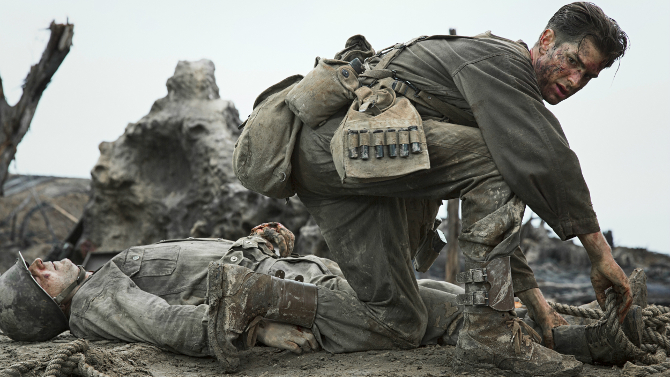
War and Peace, Gibson Style
Hacksaw RidgeDecember 16, 2016Juxtaposing the horrors of war around a message of peace, Mel Gibson’s 2016 offering, Hacksaw Ridge, is a rivetting piece of film making, capturing a touching love story, a complex family dynamic and harrowing battle sequences, giving us a rich, multi-faceted tapestry. Providing us with an effective window into the upbringing of our main character, Desmond Doss (Andrew Garfield), Gibson is easily able to make us bond with our lead. Each aspect of the first third of the movie, where we see this boy grow into a young adult, is perfectly chosen, as it renders us with a vision of exactly who he is as a human being. Son to a kind mother, Bertha (Rachel Griffiths), and a complicated, abusive father, Tom (Hugo Weaving), who is struggling with demons from his time spent in the military during World War I, he also has a brother nicknamed Hal (Nathaniel Buzolic). Nearly killing his brother after a tussle at a young age, Desmond becomes focussed on the Sixth Commandment: thou shalt not kill.
-
Star Pick with Chris 'Knuckles' Nilan
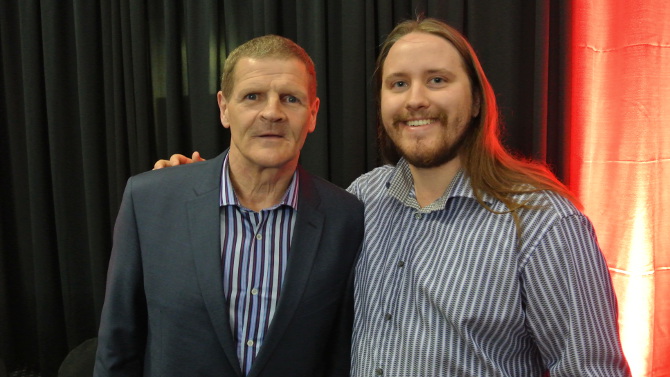 Patton Four Star MoviePattonDecember 17, 2014
Patton Four Star MoviePattonDecember 17, 2014Two weekends ago, Agape held their annual charity boxing event at Nav Can. This year, their invited celebrity was none other than former NHL heavyweight Chris ‘Knuckles’ Nilan, who supported the event in order to raise money to help battle hunger. The Boston Massachusetts native, who played for such teams as the New York Rangers, Boston Bruins and for most of his career, the Montreal Canadiens (winning his only Stanley Cup with the team in 1986), is fondly remembered for holding numerous records that landed him in the sin-bin and being one of only nine players to ever reach more than 3000 penalty minutes.
-
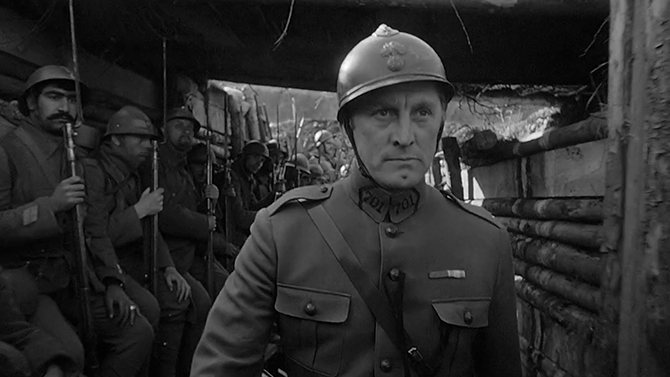
War, What is it Good For?
Paths of GloryMarch 2, 2014Stanley Kubrick, one of the great directors of the 20th Century, was a unique artist who was able to experiment with many different genres throughout his four plus decades of work. From film noir to horror, Kubrick’s movies were varied so that no two were similar, other than perhaps in theme. Of his 13 motion pictures, only two were war based, with the 1987 Vietnam narrative Full Metal Jacket being one of his most iconic. Yet, I am going to talk about his earlier anti-war film, the 1957 classic Paths of Glory.

